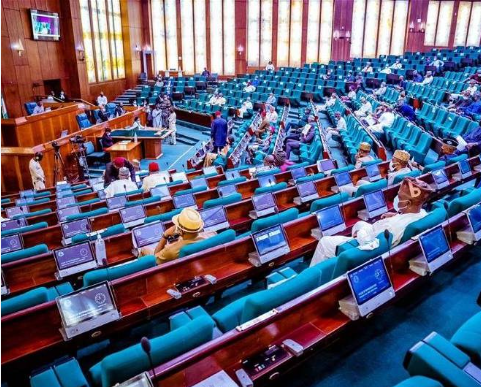The House of Representatives in Nigeria has taken a significant step by urging the Federal Government to formulate a comprehensive blueprint aimed at integrating indigenous refiners into the nation’s petroleum production value chain. This resolution came after the adoption of a motion introduced by Deputy Minority Whip Mr. George Ozodinobi, highlighting the critical need for reform and regulation within the Nigerian petroleum sector. The call emerged from a broader concern regarding the exclusion of artisanal refiners—a practice widely conducted in the Niger Delta—despite the potential contributions they could make to the local economy and resource sustainability.
In his address, Ozodinobi emphasized that addressing the nation’s resources aligns with constitutional imperatives to foster prosperity among citizens. He pointed out the detrimental effects of the government’s neglect of artisanal refining practices, which have purportedly led to the loss of lives and revenues. The longstanding tradition of artisanal refining in the Niger Delta has gone unrecognized and unregulated by the government, he argued, leading to an ongoing struggle to control illegal refining activities that have exacerbated environmental degradation and social instability in the region.
Taking historical context into account, Ozodinobi recalled the Federal Government’s 2016 initiative that aimed to assimilate artisanal refiners into mainstream oil operations. This proposal was intended to enhance local content and leverage indigenous technology for petroleum refining. However, he lamented that after seven decades of environmental damage in the Niger Delta, there remains a lack of political will to support local refiners and promote home-grown solutions that could mitigate Nigeria’s energy poverty and dependence on imported refined petroleum, further exacerbating the issue of energy insecurity in the nation.
Critically examining the prevalent attitudes towards artisanal refiners, Ozodinobi denounced the stigmatization of these local operators as “oil thieves.” He argued that the government’s punitive measures, including deploying the Nigerian Navy to dismantle artisanal refineries, have only led to further environmental destruction and unstable community relations in the Niger Delta. The failure to nurture and support these local refiners has left the country with a poorly functioning refinery system, with only four refineries remaining operational but underperforming for decades.
Ozodinobi’s arguments are underscored by the paradox of Nigeria being a major exporter of crude oil while simultaneously being a significant importer of refined petroleum products. This contradiction has persisted amidst recurring fuel crises and the underperformance of the Dangote Refinery, which has drawn allegations of sabotage. Given the existing energy challenges, Ozodinobi called for a renewed commitment to fostering indigenous technology in refining, taking inspiration from global leaders including Japan, the United States, and China, who successfully develop and leverage local production capabilities.
When the motion was put to a vote, it received unanimous support from House members, indicating a collective recognition of the issue’s urgency. Deputy Speaker Benjamin Kalu, who presided over the plenary session, directed the Nigerian Upstream Petroleum Regulatory Commission to devise a regulatory framework that formally integrates artisanal refiners into the oil production value chain. Additionally, the House committed its committees on Petroleum Resources—covering downstream, upstream, and midstream sectors, along with Local Content—to ensure adherence to this new framework, with a request for compliance reporting within four weeks, setting the stage for substantive legislative action.














